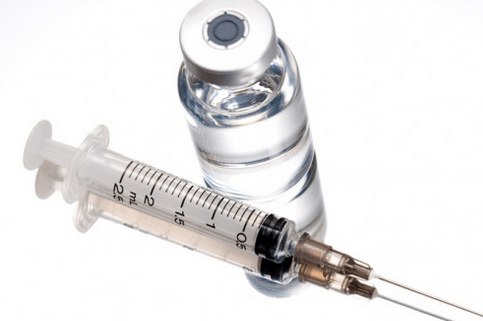
The National Vaccine Institute Bill 2022, which would help Ghana to produce vaccines, has been passed by Parliament.
The new legislation proposes to establish a National Vaccine Institute to coordinate and supervise vaccine and sera research, development and manufacturing in Ghana.
The proposed National Vaccine Institute will be founded in response to the country’s lack of a sustainable supply of vaccines to combat diseases.
Ghana established the Expanded Programme on Immunisation (EPI) in 1978, and the programme later received significant financial and technical support from Gavi, the vaccine alliance, which currently covers more than 89% of the cost of vaccines and vaccine delivery within the country.
As a result, the country needed to be self-sufficient, particularly in the development and manufacture of vaccines and sera, the government explained.
The Coronavirus Disease (COVID-19) pandemic had devastated global health systems and economies, according to a memorandum accompanying the bill.
It added that Ghana had experienced the detrimental effects of COVID-19 on public health and socioeconomic lives ever since the country reported the first two cases in March 2020.
The discovery of fresh COVID-19 variations has also left the nation uneasy, and while the COVID-19 vaccinations are now available in the world to assist in fighting the pandemic, the deployment in Africa has been insufficient due to restricted manufacturing capacity and issues with the global supply chain, the government stated.
It said vaccine nationalism continued to be a problem for establishing adequate immunity for the intended group.
According to the memorandum, as of September 14, 2021, only 5.1% of Ghanaians had received all recommended vaccinations, far short of the required 66.1% for “achieving herd immunity.”
In addition, it stated that the government needed to research and produce its own vaccines to help in the fight against infectious diseases like malaria, cholera, HIV/AIDS, and tuberculosis, which are still a burden on the nation.
The memorandum noted that the government’s policy direction of ‘Ghana Beyond Aid’ emphasises the need to chart a path toward self-sufficiency in order to boost economic development.
As a result of the foregoing, President Nana Addo Dankwa Akufo-Addo established a presidential committee on vaccine development and manufacturing to bring the vision of domestic vaccine manufacturing to fruition.
The committee met with a wide range of stakeholders involved in vaccine development and manufacturing in Ghana, and it assessed the country’s capacity for vaccine development and manufacturing.
The memorandum pointed out that the committee suggested creating a National Vaccine Institute to oversee the nation’s production of vaccines and sera.
The Presidential Commission on Vaccine Research and Manufacturing recommended that a National Vaccine Institute be established, and the President made that announcement during his 26th update on efforts the government has taken to avoid COVID-19 on July 25, 2021.
The National Vaccine Institute is thus expected to put the government’s vision of securing much-needed vaccines through domestic vaccine development and production into action.
In the short, medium, and long term, the National Vaccine Institute is expected to operationalise the government’s vision of securing much-needed vaccines through domestic vaccine development and manufacturing.
By Ernest Kofi Adu, Parliament House
The post National Vaccine Institute Bill Approved appeared first on DailyGuide Network.
Read Full Story












Facebook
Twitter
Pinterest
Instagram
Google+
YouTube
LinkedIn
RSS